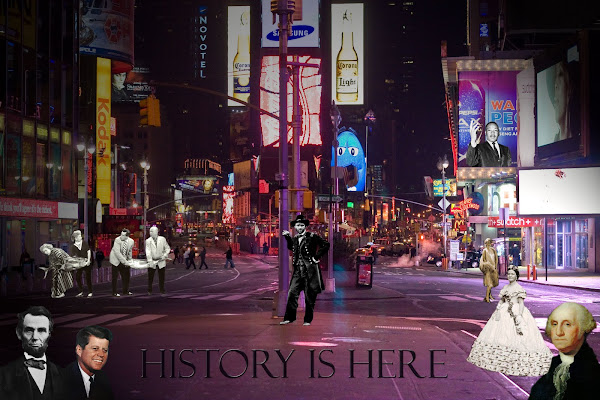
I had a history professor once who had no technological skills whatsoever. Every time we watched a DVD in class, he had to have one of the students set it up for him, and he had no idea what copy and paste meant. One might think that his class was absolutely awful and boring, but it was actually quite the opposite. What he didn't know about technology, he made up for in content knowledge, and enthusiasm. Not only was this guy an expert on the Civil War and World War II, he was an expert at keeping you awake in class as well. He knew how to keep you on the edge of your seat wondering, "Really? ...What happens next?" Even though you already knew the outcome of the historical situation, you wanted the hear the story again anyway. It was also funny to watch him standing in front of the classroom in his Harley Davidson jacket with his Burnside sideburns fumbling with the overhead projector (The one piece of technological equipment he knew how to use). Many people would say that he was a less than adequate teacher for not caring enough to learn about technology, but as someone who has had little experience with it myself, I kind of admired him. In fact, he was one of my favorite professors. While the concept of copy and paste is an important and simple task to learn, it is such a small part of something so much bigger. Sometimes I wonder if today's students rely too much on the use of technology. They always seem to be plugged in with their cell phones, ipods, computers, video games, and every other gizmo and gadget one can imagine. They seem to have less and less appreciation for doing things without the use of technology. On the other hand, however, I also wonder if teachers rely on technology too little. While I am someone who learns best from a good old fashioned lecture, I do realize that a variety of instructional methods are needed to be truly effective in today's classrooms. Many teachers don't have great technological skills, and many more just use it simply because it is there. My sociology professor for example uses PowerPoint on a daily basis, and while she combines it with in-class activities and videos, she rarely expands on the information on the slides. She just simply flashes through them so quickly that we as students completely miss what she is talking about because we are trying to read and copy the massive amounts of information she puts on the slides. If it weren't for the class participation grade, most of the people in the class, myself included, wouldn't bother going. Recently, I myself had to put together and present a PowerPoint. I had always considered myself to be fairly well versed in the PowerPoint program. I was wrong. I had no idea that the slides on a PowerPoint could be used to hyperlink to other slides, or that you could embed a video onto it and burn the whole thing onto a CD. Actually I wasn't 100% sure that my computer could even burn a CD. It can. Since doing this little project, I have a whole new outlook on PowerPoint. What was once kind of a hum-drum program is now kind of fun. I have also figured out that my computer can make slide show movies. I have always wanted to learn how to make movies movies, so I sat down the other day and played around with it. The result was a short video featuring my cats. It was nothing special, but it was fun to learn something new. I suppose my point is that I have learned that the best teachers are those who can tell the great stories, but can also use technology in a creative, useful, and non-distracting way. I decided to use PowerPoint to put the story into history, and aside from a few minor glitches, I think it turned out alright. I also used podcast (another piece of technology I was previously unfamiliar with) to create a 1920's radio show. Not only was it extremely informative, but it is an activity I would do with my students. PowerPoint would make an excellent storybook type activity as well. While I won't be that teacher who is famous for being a technological genius, I also won't be that teacher who has to have my students help me with the little things. I will be that teacher who is between anti-technology Burnside and that really dull PowerPoint teacher, which in my opinion is a good spot to be. Although I insist on being the keep them on the edge of their seats teacher above all other things.
